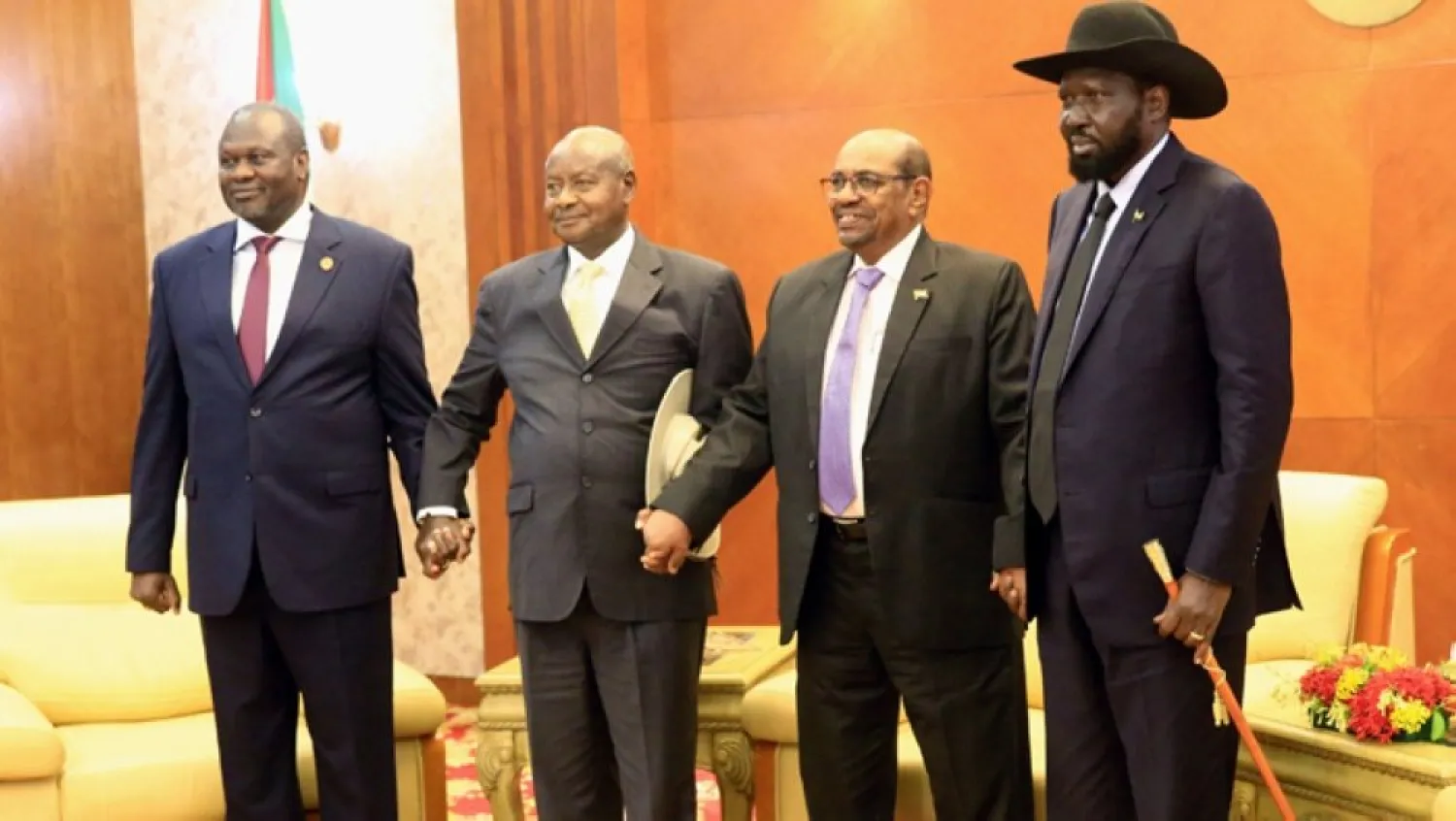South Sudan President Salva Kiir expressed on Monday hopes that the new round of talks in Khartoum with his archfoe Riek Machar in Khartoum will bring an “immediate end” to the devastating war in their country, AFP reported.
Sudanese President Omar al-Bashir hosted the two rivals in the presence of Ugandan President Ugandan President Yoweri Museveni. The two met at the Khartoum conference center for a second round of talks hoping to end a bloody four-year civil war ravaging southern Sudan.
AFP pointed out that leaders in East Africa are making new efforts to achieve peace in southern Sudan, where warring factions have a deadline to reach a solution in order to avoid United Nations sanctions.
The first round of talks, sponsored by Ethiopian Prime Minister Abiy Ahmed, failed to achieve any breakthrough.
"I have come to really bring this unnecessary war in our country to an immediate end, and I hope that Doctor Riek Machar is ready to see my point," Kiir said, as the meeting got underway in the presence of Bashir and Museveni.
Machar too raised hopes that peace was possible in South Sudan, where tens of thousands of people have been killed and nearly four million displaced since fighting erupted in December 2013.
"There is a chance for peace and there is a way to achieve peace," Machar said, in his first remarks to journalists in more than two years.
The two leaders shook hands and later stood alongside Bashir and Museveni with their hands raised as the meeting commenced, an AFP correspondent said.
"As the people of South Sudan, not the president alone, but as the people of South Sudan, we are saying enough is enough," South Sudanese government spokesman Michael Makuei said Friday.









